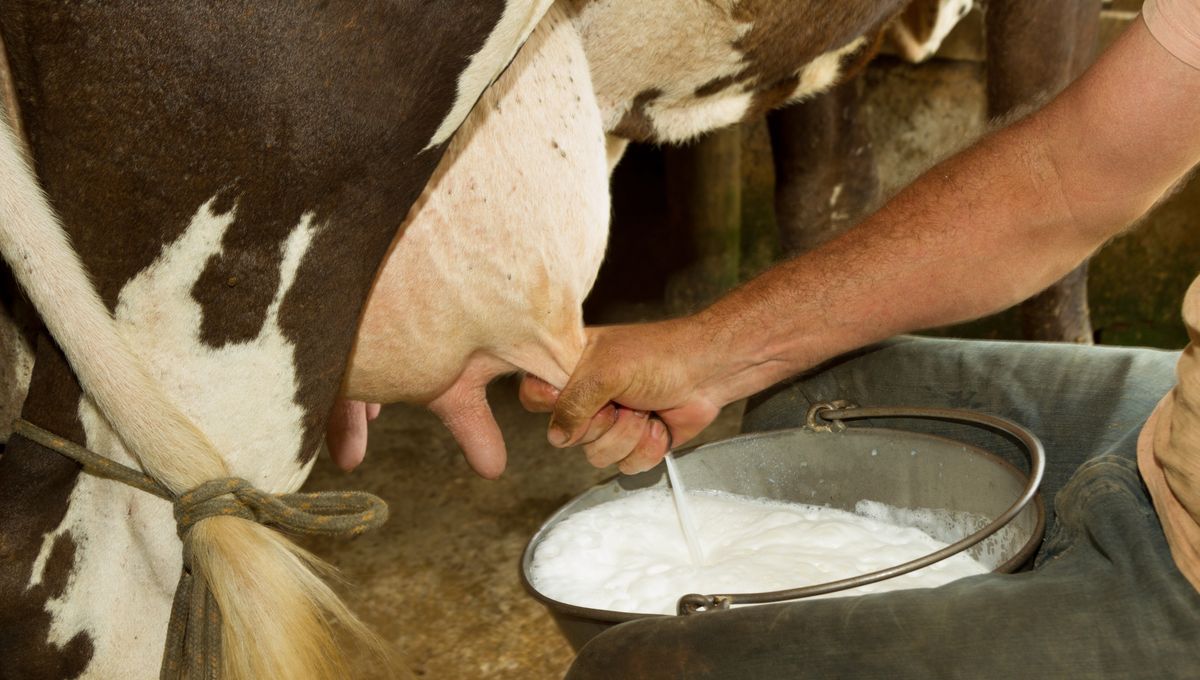
Scientists in Brazil have engineered a cow to produce human insulin in its milk, making history as the world’s first transgenic cow capable of such a feat. Though still a long way off, the researchers hope that this bovine breakthrough could open doors for sustainable insulin production and help tackle the world’s insulin supply problems.
For now, the achievement is just a proof-of-concept – but with additional testing and Food and Drug Administration (FDA) approval, it could be scaled up to rival current insulin production methods, which involve genetically modified yeast and bacteria.
“Mother Nature designed the mammary gland as a factory to make protein really, really efficiently. We can take advantage of that system to produce a protein that can help hundreds of millions of people worldwide,” Professor Matt Wheeler, lead author of a paper describing the development, said in a statement.
To do this, Wheeler and co-authors created a transgenic cow by inserting a segment of human DNA that codes for proinsulin (the protein precursor of insulin) into the nuclei of 10 cow embryos. These modified embryos were then implanted into the uteruses of normal cows, one of which gave birth to a living, transgenic calf.
Despite struggling to get the cow pregnant once it had reached maturity, the team was able to induce lactation using hormones. This yielded a smaller quantity of milk than would occur after pregnancy, but what milk it did produce contained human proinsulin – and, to the team’s surprise, insulin.
“Our goal was to make proinsulin, purify it out to insulin, and go from there. But the cow basically processed it herself. She makes about three to one biologically active insulin to proinsulin,” Wheeler said.
The genetic engineering technology used means that human insulin was targeted for expression in mammary tissue only, and was not present anywhere else in the cow.
For the insulin and proinsulin to be used, they would first need to be extracted and purified. Assuming this can be achieved, Wheeler proposes that if each cow could make 1 gram (0.04 ounces) of insulin per liter of milk, the system could make a lot of insulin.
A typical unit of insulin is 0.0347 milligrams (0.000001 ounces), which “means each gram is equivalent to 28,818 units of insulin,” Wheeler said. “And that’s just one liter; Holsteins can produce 50 liters per day. You can do the math.”
The researchers now plan to re-clone the cow and eventually hope to create a whole transgenic herd. This, they say, could one day supply insulin to the millions of people with diabetes across the globe.
It may be a pipe dream for now, but Wheeler is optimistic: “I could see a future where a 100-head herd, equivalent to a small Illinois or Wisconsin dairy, could produce all the insulin needed for the country,” he said. “And a larger herd? You could make the whole world’s supply in a year.”
The study is published in the Biotechnology Journal.
Source Link: Genetically Modified Cow Produces Human Insulin In Milk In World First